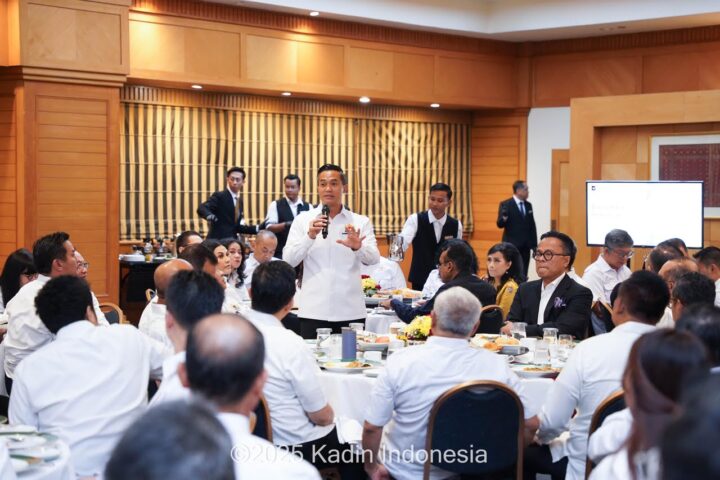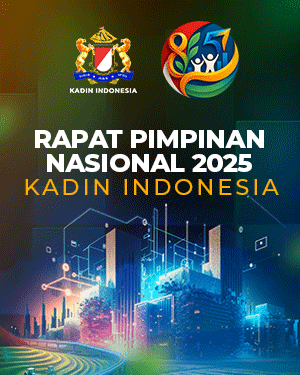
Jakarta - The Indonesian Chamber of Commerce and Industry (Kadin) for Foreign Affairs held another monthly forum titled Monthly Economic Diplomatic Breakfast at Hotel Aryaduta, Jakarta, on Friday (09/05/2025).
The agenda this time brought together Kadin Indonesia and the Daya Anagata Nusantara Investment Management Agency (Danantara Indonesia), to explore opportunities for strategic cooperation in the future.
Chairman of Kadin Indonesia, Anindya Novyan Bakrie, in his speech highlighted the great potential of Danantara in encouraging the efficiency of State-Owned Enterprises (SOEs) while accelerating national investment.
Anin, as he is familiarly called, said that the previous meeting with Danantara in Los Angeles, United States (US) showed high enthusiasm for an approach that was considered a major breakthrough.
‘It was extraordinary. Because from their language, this is a breakthrough to make SOEs more efficient but also able to scale investment going forward,’ said Anin.
‘Danantara's assets under management are around US$900 billion, with annual returns of around US$10 billion. Imagine if efficiency increases by 1%, the yield could increase by another US$10 billion,’ Anin added.
Anin also highlighted Danantara's structure, which is considered to be promoting better good corporate governance through a shareholder activism approach.
According to her, the restructuring of a leaner board of directors and commissioners is an indicator of positive change.
Furthermore, Anin also appreciated the involvement of a number of important figures in the Danantara ecosystem, including Danantara's Chief Operating Officer (COO) Dony Oskaria, former Chairman of Kadin Indonesia Rosan Roeslani, and Chief Investment Officer (CIO) Pandu Patria Sjahrir, who was named as an investor of the dividend proceeds.
‘If Mr Dony (Oskaria) is successful, there will be more dividends. This means that more can be invested,’ said Anin.
‘And I also appreciate and thank Kadin for being invited to join in the success of Danantara. Because Danantara, of course, also belongs to all of us, and we are considered a strategic partner by the Danantara government, which is very meaningful,’ Anin added.
In the context of foreign relations, Anin also conveyed the development of Indonesia's economic diplomacy in the US. According to her, Indonesia's trade surplus with the US of US$18 billion has the opportunity to be balanced through energy imports of up to US$40 billion in the form of oil and gas and their derivative products.
‘The US (United States) also wants to import more, from soya, cotton, meat, to milk. If today our total import-export with the United States is US$40 billion, in two years it could rise to US$80 billion, and in the next four years it might reach US$120 billion, equivalent to our trade with China,’ said Anin.
Anin also expressed confidence that Indonesia's position is very strategic on the global map, especially because it has critical minerals such as nickel, copper, and bauxite, which are fought over by many countries.
This is an attraction for partners like the US to establish investment cooperation, even in the upstream side of the energy industry.
‘Because this power that I see in Danantara already exists, so I am not denying it. Now the economy does have a bit of a headwind. But if we look fundamentally compared to other countries, we are capable,’ said Anin.
From Danantara's side, COO Dony Oskaria explained the fundamental difference between Danantara and other countries' Sovereign Wealth Funds (SWF).
Dony said that while SWFs generally manage excess state revenues, Danantara is based on asset management and dividends from state-owned enterprises, not from the state budget.
‘We have made clear boundaries from the start. There should be no mixing of risks between SOE operations and investment. What we invest in is dividends, not funds from the state budget,’ said Dony.
He added that public communication about Danantara's business model is important to avoid misunderstandings about investment risks and SOE involvement.

National Economy
Regional Economy
National Economy
Regional Economy